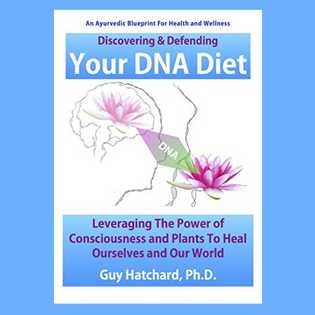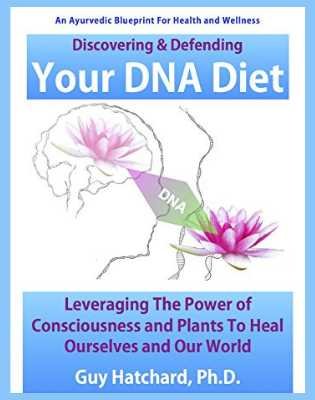Every global shift in power has its own quasi scientific philosophy.
At first sight, the pandemic has brought together unusual bedfellows into a nascent global power structure—the medical profession, a new generation of youthful politicians, mainstream media, biotechnology advocates, globalists, social media moguls, tech giants, very large investment umbrellas, and the commercial pharmaceutical industry.
No doubt there are financial incentives involved, but the philosophy which they share is key to understanding their common cause. Unpicking the flaws in their philosophy reveals they are a danger to themselves.
At the very root of the new outlook are concepts ported from established science that coincidentally, at the same time they became geopolitical fashions, were increasingly being called into question by cutting-edge science.
These revolve around the notion that natural law and therefore our human condition is fundamentally the result of random processes and no holds barred competition. This implies that life itself can be manipulated and controlled with impunity. Whatever your beliefs, this is an amoral philosophy.
The popular acceptance of the dominant role of chance in the emergence of life and its evolution, has helped to undermine notions of morality, right, and wrong.
Allied to this is the idea that life is a winner takes all competition in which only the fittest survive. For almost two centuries this philosophy has nourished the idea that might is always right—that some people are destined to rule in its most absolute sense.
The present social transformation does not however appear to be a revival of the philosophy of Nietzsche, Hitler or Chairman Mao, it prides itself as a democratic social good. It promises freedom from disease and long life.
All the stakeholders are bound together, imagining themselves as participating in a long awaited health revolution in which everyone is a winner. It will free them from the vicissitudes and uncertainties of random chance and put them back in charge of their own destiny via the miraculous manipulation of DNA.
Chance or Design?
But is life a chance phenomenon?
Are chemical and physical phenomena arbitrary, their properties linked by evolutionary chance and circumstances to the particular kinds of life which emerged through adaptive processes and continued to adapt through a series of fortuitous events?
Is therefore genetic manipulation a route to a more rapid pace of evolution? Or more starkly put, is life a matter of chance rather than design?
This question does actually have testable scientific content, and that testing has been recently completed. Zachary Blount, reporting in 2017 (BLOUNT, Z. D., Replaying Evolution Is the living world more a result of happenstance or repeatable processes? American Scientist, Vol 105 p. 156-165, May-June 2017. ) states the proposition as:
“if evolution is highly contingent (on chance events), then it is inherently unrepeatable.”
In fact, by studying thousands of generations of bacteria and by looking closely at related species of lizards on separate islands within an archipelago, Dr. Blount and his colleagues have concluded that evolution is both repeatable and contingent on chance.
Evolutionists have coined the phrase evolutionary potential, to cover its repeatable element. Dr. Blount concludes that there is a need to understand how chance and evolutionary potential interact:
“A better comprehension of evolutionary potential and its role in contingency will require a multidisciplinary effort involving not just evolutionary biologists, but also molecular biologists, geneticists, biophysicists, and systems biologists”.
In other words, the present popular understanding of evolution as solely the result of environmental adaptation and competition following random mutation is incomplete and potentially misleading.
Cooperation or competition?
Moreover, nature is also primarily cooperative rather than only competitive. The co-evolution of plants and insects is very instructive in this regard.
Dr. Benjamin Rubin writing in the journal Nature Communications (RUBIN, B. E. R., MOREAU, C. S., Comparative genomics reveals convergent rates of evolution in ant–plant mutualisms, Nature Communications 7, Article number: 12679 25 August 2016) reports new findings which suggest that cooperative, mutualistic, or symbiotic behaviour between different species results in faster genetic evolution. Cooperation is a winning strategy.
I would concur with both Dr. Blount and Dr. Rubin and add the need to reference their work to foundational physics. There are underlying universal laws of nature elucidated by physics which support life in a particular form and have given rise to emergent properties of life.
These most fundamental unified laws of nature have properties which are recognisably intelligent. Their non-abelian mathematical character identifies them as self-referral, creative, and holistic, as if conscious.
Living systems acquire and extend all the properties which are inherent in the design of nature. Life then is lawful, it has rules by which it unfolds.
I am not concerned here with how much the major players of the pandemic consciously articulate these ideas, but rather they merely feel that as life in its broadest sense is the result of chance and competition, it can be and should be redesigned by themselves however they see fit.
In this philosophy, there are no absolute rules or rights. The rules can be changed. This is all about humans being free to redesign nature without constraints, to make it their own. A sort of biotechnology heaven in which we ourselves make the rules.
Genetic Manipulation is Dangerous
From this perspective genetic manipulation becomes a matter of fulfilling our human destiny to overrule nature. The complete opposite of nature knows better than man how to organise. I have already discussed the inherent dangers of genetic manipulation at length (see my YouTube video The Pandemic of Biotechnology).
The naive promotion of a medical future dominated by biotechnology, undertaken by the leaders of the so-called new world order including our prime minister, amounts to a self-destructive folly which threatens to engulf the world in an era of mass extinction. An era towards which many are sleep walking, lulled into complacency and compliance.
Research in evolutionary genetics highlights this frightening prospect. David Reich, leading professor of genetics at Harvard University, has studied the DNA of ancient human remains using ground breaking techniques.
His book ‘Who We Are and How We Got Here’ reports that our current conception of the evolution of modern humans is faulty. The genes that support higher human abilities such as skills with language and tools are not the result of a genetic mutation in Africa 350,000 years ago, they have been part of our genome for at least a million years, probably more than five million years.
Play with these at your peril. He also reports that almost total human extinction events, known as Adam and Eve events, are far more common that we have previously realised.
Naive, uninformed, and unregulated application of genetic manipulation is a path that should have been left untravelled, but unfortunately it is a path already ventured.
There is still time to shut pandora’s box, but with every new step of government and media sponsored compulsion that time is running out. The great idea of the Great Reset is actually a poisoned chalice.
Guy Hatchard Ph.D. was formerly a senior manager at Genetic ID a global food safety and certification company (now known as FoodChain ID). He is the author of the book: “Discovering and Defending Your DNA Diet”






